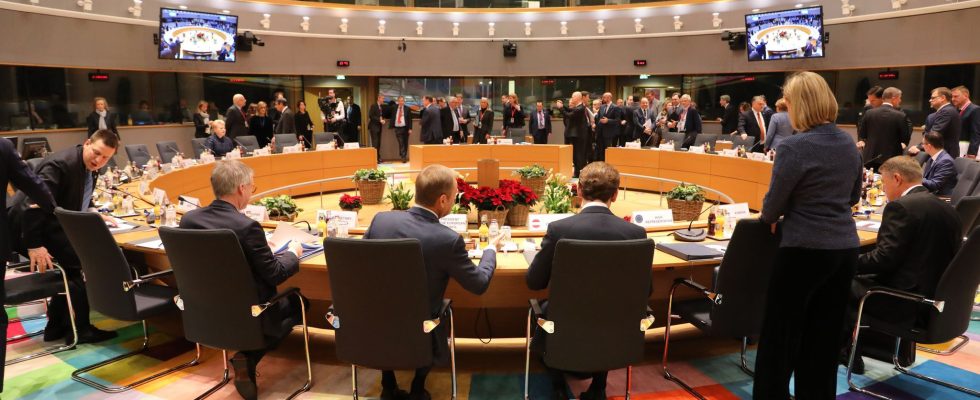Set a strategic direction but above all outline the method for further enlargement of the European Union. This is the objective of the third meeting of the European Political Community (EPC) this Thursday, October 5. Driven by Emmanuel Macron, this format aimed to integrate non-EU countries into the discussions, starting with Ukraine.
The first editions in Prague then Chisinau made it possible to organize fruitful bilateral meetings between leaders. The ambitions of this new summit will therefore be numerous in a context of growing tensions on the continent. The war that occurred in Ukraine a year and a half ago, the lightning offensive by Azerbaijani forces in Nagorno-Karabakh, the recent victory of pro-Russian populists in Slovakia, the differences on the migration issue and even Poland’s decision to stop arms deliveries to Ukraine are all events contributing to dissensions in Europe.
If the heads of state and government must discuss several subjects during the CPE meeting – multilateralism, economic and digital transition, artificial intelligence and cybersecurity – the question of EU enlargement in the next decade will be discussed tomorrow at a more informal summit of the European Council with the 27 EU member states. In addition to Ukraine, which submitted its application for membership on February 28, 2022, eight other countries are knocking on the door of this political-economic group in the decade. This is the case for the six Balkan countries: North Macedonia, Montenegro, Serbia, Albania, Bosnia-Herzegovina and Kosovo as well as Moldova and Georgia.
EU “States General”
The President of the European Council, Charles Michel, is thus proposing to the Member States a sort of “states general” of the EU. He invites the 27 to take stock of previous work and how to strengthen the EU’s strategic autonomy. The discussions will contribute in particular “to preparing the next EU strategic programme, a five-year action plan aimed at providing the EU with general political orientations and guidelines”, we read on the European Council website. The project promises to be important due in particular to the lack of wealth in these countries.
An entry of 186 billion over 7 years
According to an internal European document revealed by the British economic daily Financial Times, Ukraine’s entry into the EU would cost the 27 member countries a whopping 186 billion euros over seven years. The total amount of entry from 9 Member States would amount to a total of 256.8 billion euros over 7 years. The EU budget would thus increase by more than 20% to reach 1.47 trillion euros.
“This is why we must also present this enlargement as an opportunity, with a population gain of around 14%, an increase in GDP [bien moindre, NDLR]new markets for EU companies”, estimates a European diplomat to Echoesfor whom “this project is part of the continuation of the peace project that is the Union”.
